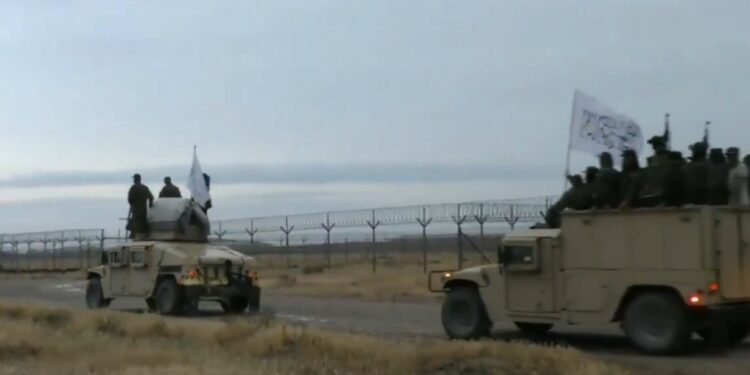After days of deadly cross-border violence, Pakistan and Afghanistan’s Taliban-led administration have agreed to a 48-hour ceasefire beginning Wednesday evening.
The truce follows intense airstrikes by Pakistani forces in Kandahar’s Spin Boldak district, which reportedly killed at least 15 civilians and injured over 100, including women and children.
The Pakistani Foreign Ministry stated the ceasefire aims to de-escalate tensions. It also aims to open diplomatic channels. Kabul, while agreeing to the truce, emphasised it was “at Pakistan’s insistence.” Furthermore, they warned against further aggression.
The conflict was triggered by Islamabad’s demand that the Taliban curb militants allegedly operating from Afghan soil. The Taliban denied the accusations and countered that Pakistan was spreading misinformation and harbouring ISIS-linked elements.

Amid the violence, Taliban fighters claimed to have seized Pakistani military equipment, including a T-55 tank, though Islamabad has not confirmed the footage circulating online.
The clashes have disrupted trade routes, displaced thousands, and drawn international concern. China, Russia, and the U.S. have urged restraint. Meanwhile, Pakistan has sought mediation from Qatar and Saudi Arabia.
Diplomatic ties have further frayed, with Afghanistan reportedly denying visas to top Pakistani defence officials. Meanwhile, Afghan Foreign Minister Amir Khan Muttaqi’s visit to India has added to Islamabad’s unease, as New Delhi signals a renewed engagement with Kabul.






























